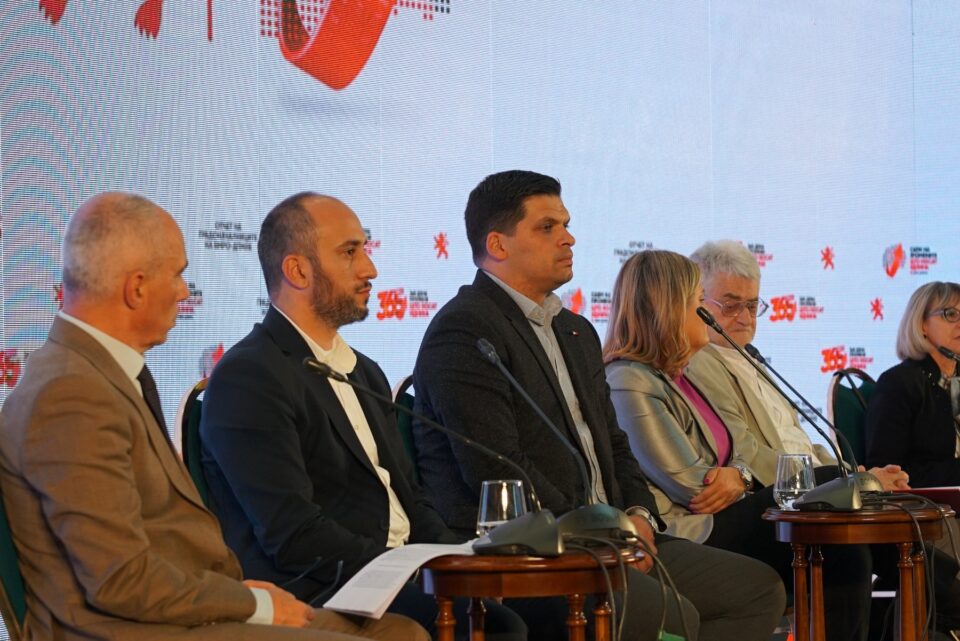At today’s forum “Challenges of local self-government in conditions of energy crisis” organized by VMRO-DPMNE, the president of the party’s Commission for Energy Elena Markova reminded the public that after the local elections, the central Government left the municipalities to fend for themselves under the major energy crisis.
Despite the fact that VMRO-DPMNE won the local elections and won the largest number of municipalities, the worst thing happened that our mayors faced problems of an unprecedented scale caused precisely by the lack of seriousness on the part of SDSM. Clear indication was the first energy crisis that they declared for a period of six months from December 2021 to June 2022, with the drop of supply of electricity and partial supply of thermal energy in the territory of the city of Skopje. The same thing happened this year, so somewhere from last month until the end of April we have a declared electricity crisis again. During all this time, several more terrible problems were happening, that is, the price of electricity and gas on the stock exchanges was rising. However, unfortunately, the price of electricity at home in our country also increased, either for households or for small consumers, and for those companies that purchase on the free market, there is no need to say that there was a period in which the price once increased by 7, 8 even 10 times, Markova said.
Sanja Bozinovska, strategic adviser of party leader Hristijan Mickoski on energy issues, said that the challenges of local self-government units in the energy crisis come from the fact that the state is not ready for the crisis, and the energy plants produce half of what they did before.
Every day we hear about increased electricity prices. The prices are really high, and we as a country are not ready. If there was better management in recent years, for example in 2010 there was ELEM production of 6,400 gigawatt hours, but last year 2021 it was reduced by 50%, to 3,200 gigawatt hours. This means that Macedonia, as they knew the sun, should turn to solar energy, said Bozinovska.
Bozinovska pointed out that Macedonia should look at Croatia and Serbia, which subsidize up to 50% of the price of solar panels, or that households that contribute more energy to the electricity system may receive money or use the energy further. She also added that in Macedonia the land on which permits for photovoltaics are issued is debatable, photovoltaics should not be placed on fertile land.





Comments are closed for this post.